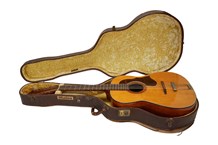Several changes were made to the text adopted in the Sénat (Upper House) last June. The new text now awaits approval by the Sénat (provisionally scheduled for February 22) before returning to the Assemblée for ratification (probably in April).
Should differences between the two houses remain after the second reading, a joint parliamentary commission will be set up to finalise the text of the new law.
Highlights of the new law after its first reading in the Assemblée include:
* the abolition of the commissaires-priseurs' auction monopoly was definitively approved.
* A Conseil des Ventes, to vet auctioneers and supervise auction activity in France, will be created, and consist of six government appointees and five members named by the auction profession.
* Compensation to commissaires-priseurs for the loss of their monopoly will correspond to 50 per cent of the value of their Étude, rather than the “evaluated prejudice” as proposed by the Sénat.
* Compensation will be financed by the State and not by a one per cent auction tax, as initially proposed.
* The government refused an opposition amendment seeking to exonerate works of art acquired outside the EU from import VAT.
* The new law will not cover cyber auctions, which are expected to be dealt with in a future law on e-commerce.
Laure de Beauvau Craon, head of Sotheby's France, said the bill represented “the culmination of a seven-year struggle” and that the new law would be “very beneficial for the French market”.
“Works that we have been obliged to export because of the commissaires-priseurs' monopoly will now be able to stay in France,” she said. Sotheby's expect to be able to sell in Paris “within a matter of months”.
But Drouot President Dominique Ribeyre complained that the new bill was “incomplete” as it failed to cover fiscal reform, and that the new method of calculating compensation was a “setback” for commissaire-priseurs. He predicted that “abolishing the monopoly in these conditions will encourage a duopoly of the two great multinationals” (i.e. Sotheby's and Christie's).
Gérard Champin, Président of the Chambre Nationale (national auction body), took a more sanguine view.
He expects a flexible method of assessing compensation to be included in the final bill, and told the Antiques Trade Gazette that “the main thing is that good progress is being made”.
Auction law reform takes its first steps in France
FRANCE'S auction reform bill was given its first reading in the Assemblée Nationale (Lower House) on December 21/22.




